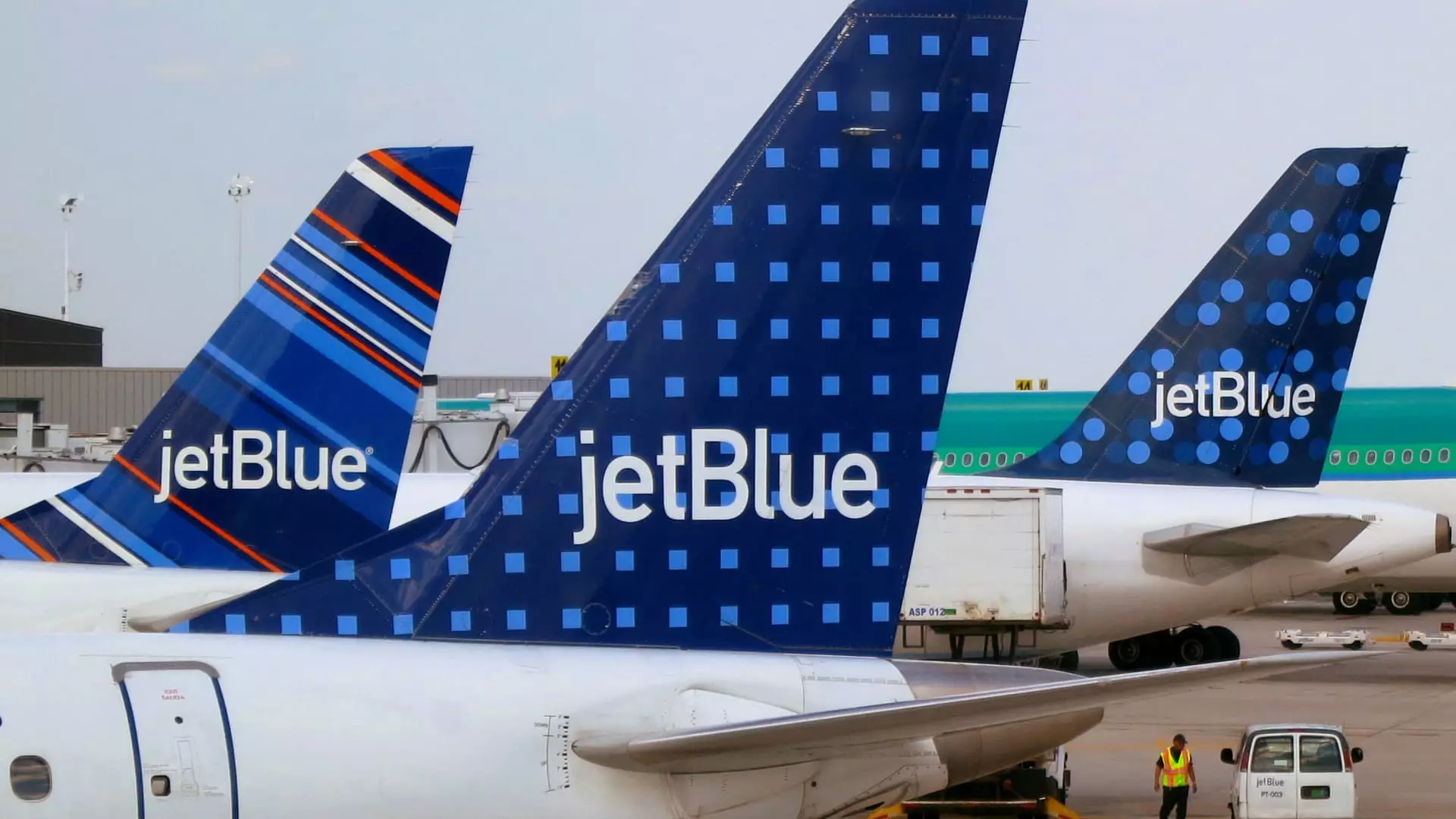In a landmark decision, the Department of Transportation (DOT) has imposed a $2 million fine on JetBlue Airways for a series of chronically delayed flights. This measure marks the first time the DOT has pursued financial penalties under these circumstances, highlighting an urgent need for accountability in the airline industry. The federal agency’s actions not only shine a spotlight on JetBlue’s operational shortcomings but also set a new precedent that other airlines may soon have to reckon with.
The Details Behind the Fine
The DOT identified four specific routes with significant issues: flights from JetBlue’s principal hub at John F. Kennedy International Airport to Raleigh-Durham International Airport in North Carolina; and from Fort Lauderdale, Florida, to Orlando, alongside flights between JFK and Windsor Locks, Connecticut. Between June 2022 and November 2023, these routes experienced delays exceeding the DOT’s threshold for “chronically delayed” flights—defined by the agency as operating with a delay of more than 30 minutes over 50% of the time across ten or more monthly occurrences. The staggering statistic, revealing that JetBlue accounted for over 70% of disruptions on these routes, underscores a failure in effective scheduling and operational management.
Transportation Secretary Pete Buttigieg emphasized that the DOT’s actions serve as a warning shot to the airline industry, insisting that flight schedules must be reflective of operational realities. However, amidst JetBlue’s accountability for its delays, the airline strategically pointed a finger back at systemic issues rooted within the federal air traffic control (ATC) framework. JetBlue’s statement reflects sentiments echoed by other major carriers, including Delta and United, which have similarly urged the government to invest in staffing improvements and update the technological infrastructure underlying air traffic control operations.
In their defense, JetBlue posited that the responsibility for reliable air travel extends beyond airline operations to the very system that governs them. The company argues for the necessity of modernizing outdated ATC technologies and addressing long-standing personnel shortages that contribute to widespread delays. This interplay between airline accountability and government oversight raises essential questions about the shared responsibility in ensuring efficient air travel for millions of consumers.
The repercussions of such chronic delays are dire, reverberating through the experience of countless travelers. For customers, regular shows of tardiness can lead to missed connections, disrupted plans, and heightened frustration that tarnishes their flying experience. As part of the settlement, JetBlue indicated plans to credit a portion of the fines towards compensation for affected passengers, highlighting the growing expectation for airlines not only to take ownership of their failings but also to actively remediate them. This fine could act as a motivator for JetBlue to reconsider operational efficiencies and enhance customer service protocols, shifting towards a model that prioritizes reliability and accountability.
Airline Performance Metrics: The Bigger Picture
JetBlue’s recent performance metrics illustrate the airline’s ongoing struggle within a competitive market. Despite the fallout from the fine, JetBlue saw a moderate improvement in on-time arrivals, climbing to 71.3% in early 2024 compared to 64.9% the prior year. Yet, even this upward movement places the carrier towards the bottom of the pack among U.S. airlines. This raises crucial questions about the long-term sustainability of their business model if punctuality remains a persistent concern. With the backdrop of increasing scrutiny from regulatory bodies, the pressure is mounting for JetBlue and its peers to deliver on promises of improved performance and customer satisfaction.
The monumental fine imposed on JetBlue Airways is a signal that the airline industry stands on the brink of a seismic shift in accountability standards. As the DOT intensifies its investigations into other carriers’ flight schedules, it is evident that a reckoning for operational shortcomings is in motion. JetBlue’s case serves as both a warning and an opportunity—a prompt for the entire sector to re-evaluate its commitment to operational efficiency, customer satisfaction, and a collaborative approach to improving the air travel ecosystem. As consumers grow increasingly discerning and regulatory measures tighten, the imperative for significant changes becomes clearer than ever.


Leave a Reply